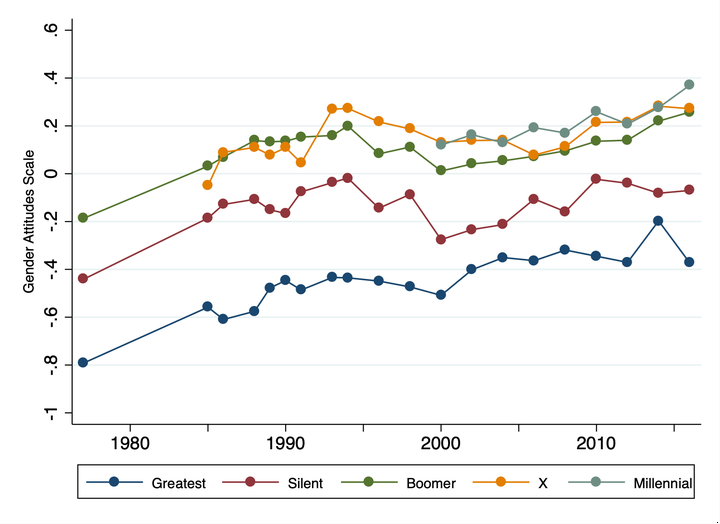Beyond the Stalled Gender Revolution: Historical and Cohort Dynamics in Gender Attitudes from 1977 to 2016
 U.S. Gender Attitudes by Generation and Year
U.S. Gender Attitudes by Generation and Year
Abstract
It remains unclear to what extent shifts in gender attitudes are products of changes in micro-level characteristics, macro-level social transformations, or net cohort and period transitions. We test these questions on 20 waves of data from the General Social Survey, 1977–2016 (N = 45,125). Compositional change in individual characteristics accounts for almost 78 percent of the cohort variation in gender attitudes, but only 32 percent of the historical transformations. Macro dynamics are responsible for an additional 60 percent of the historical change in gender attitudes. Two structural forces are associated with historical transitions in American gender attitudes: gender equality in the labor force and the rise of men’s overwork. Each of these factors accounts for a significant proportion of the period variation in gender attitudes in our analysis, and the rise of men’s overwork appears to account for the puzzle of the “stalled revolution” in the 1990s and its “restart” in the mid-2000s. The conservative swing in 1994–2004 correlates with the rise of overwork, as the proportion of men who overwork soared during this period when traditional gender roles were reinforced.